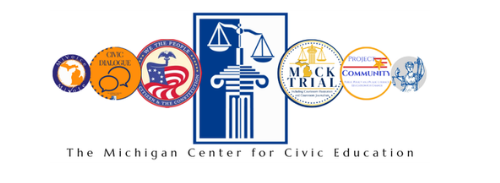The purpose of this lesson is to teach students about the significance of the Judiciary Act of 1789 in establishing a federal judiciary, and the power of judicial review as outlined by the landmark U.S. Supreme Court Case, Marbury v. Madison (1803). By the conclusion of this lesson, students will understand the key provisions of the Judiciary Act of 1789 and the structure of the federal judiciary, as well as the power of judicial review.
Civics Lessons
Judiciary Act of 1789
Qualities of Judges
Students brainstorm qualities that judges might possess, then discuss why those qualities are important.
What Makes a Court Supreme?
The purpose of this lesson is to help students understand the original purpose and
powers of the Supreme Court according to the Constitution. Students learn the Supreme Court’s role in preserving the U.S. Constitution and the balance of power it creates.
People in the Courtroom
In this lesson, students analyze a photograph of a trial. They identify the people in the courtroom, learn about the roles that they play in the legal process, and discuss how each is essential to ensuring access to justice.
Electing a President
This lesson starts with a political cartoon, then leads into discussion about the Electoral College and electing the U.S. President.
The Need for Laws: Planet Lawless
This activity will help students understand the need for rules, the rulemaking process, and the role of the student / citizen. Students will be introduced to the relationship between rules and laws and how citizens can establish laws in their communities, much like rules in the classroom, to help them live together.
Appellate Courts: Let’s Take It Up
Students learn what happens in appellate-level courts and how those courts operate differently from the trial courts most people are familiar with from watching television. By following the case of a real middle school girl who was strip searched at school, students find out what happens when someone takes a case all the way to the Supreme Court. Through this case, students learn about the structure of the federal court system and the way appellate courts decide cases.
What is the Judicial Branch?
This lesson exposes students to the judicial branch and the power of judicial review. They read about an actual Supreme Court case, Torcaso v. Watkins, to see how the judicial branch used its power of judicial review to strike down an unconstitutional state law.
Investigating the Departments of the Executive Branch
In this lesson, students learn about the role of bureaucracy in U.S. government; they then examine the history, leadership, organization, and goals of executive agencies.
Understanding Contracts
In this lesson, students are asked which of two chocolate bars – one with nuts, one without – they prefer. A single representative is taken from each preference group. These representatives are given the chocolate bar that they prefer less, motivating a contractual trade. One student unknowingly has an empty wrapper, eliciting debate after the trade is completed. The class concludes by discussing possible equitable solutions.

